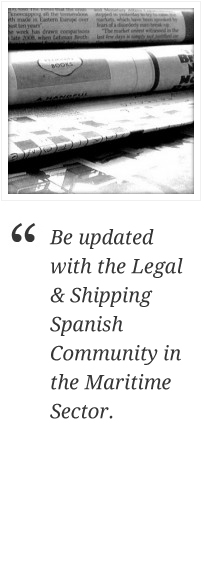January: CIRCULAR 1A/2004
SPAIN: VESSELS’ DETENTIONS BY PORT AUTHORITIES – MAPFRE BONDS
Â
The growing concern over the past few years by the Spanish authorities about shipping safety, pollution and other matters (post-Prestige measures) has resulted in sanctioning proceedings being started mainly against Masters and vessels’ interests by Harbour Masters, Port Authorities and the General Directorate of the Merchant Marine, according to the possibilities established in our Ports Law. As a preventive measure to guarantee the payment of the possible fine, the vessel is usually detained and a guarantee requested to release the vessel.
Following a 1997 domestic law (Regulation on Spanish Government Depositary), Club letters of undertaking are not acceptable by the Spanish authorities as a matter of law for pollution claims, stowaway claims, PSC claims, non-compliance with safety requirements’ claims, amongst other types of claims which are contemplated as “infringements†by our Ports Law. The 1997 law provides for the types of guarantee that are acceptable: cash money, cheques, bank guarantees and insurance bonds within others, and it also provides for the required text for each different type of guarantee.
In the event of an incident or claim where a vessel is detained by a Spanish authority as a preventive measure, delays may be expected while the provision of the guarantee is being arranged, given that Club letters are not acceptable.
In order to avoid delays in vessels’ departures, some of the International Group P&I Clubs have had, up to now, a line of guarantee or line of bond with the Spanish Insurance Company MAPFRE up to about Euros 3,005,061, which line of bond had no cost of opening and no cost of maintenance, unlike bank bonds. MAPFRE did not charge any cost except the premium rate when there was a request to provide a bond, about 1.30 % of the amount being guaranteed, and with a minimum premium of about Euros 160.
MAPFRE asked for the economic record of the last two or three years of the requesting company/association in order to study whether to open a line of bond on their behalf. Once the line of bond had been opened and before providing the guarantee, MAPFRE requested a counter guarantee to be provided by the P&I Insurance.
Initially, the advantage of having a line of bond with MAPFRE was not only its cost, but also that if one the vessels covered was arrested in a Spanish port by a port authority and a guarantee was requested to release the vessel, a MAPFRE bond could be obtained in only three or four working hours, whilst a bank guarantee not only has a higher cost but it also takes longer to be obtained: from two days to even one week or more depending on the correspondent/s Bank/s in Spain to that of the P&I / Shipowners’ Foreign Bank and on their understanding of the exact wording of the swift.
However and given the high amounts of the guarantees lately requested by the General Directorate of the Merchant Marine and port authorities and the slowness of the sanctioning proceedings and appeals, some P&I Club experiencing heavy claims may have reached the line of bond of Euros 3,005,061.
Despite the fact that since September 2003 MAPFRE has not issued any bond as they have apparently received no request, we have been officially advised by MAPFRE that they have decided to stop providing these guarantees as they will abandon this type of business. Whilst MAPFRE’s general view is not to issue any new bond as from now on to any of the P&I Clubs, there are still some exceptions where the Spanish survey company SERMAP, belonging to MAPFRE, is involved amongst other special circumstances where the amount involved is not high.
We are now trying to find a solution to this situation by looking for another facility in Spain (there are presently five insurance companies in Spain ready to provide insurance bonds) which would be ready to provide the same type of service to P&I Clubs which would allow the quick departure of a vessel at a low cost of maintenance of the guarantee.
Despite the above, we will continue our liaisons with the General Directorate of the Merchant Marine in Madrid to see whether they would be ready to accept Club letters, although difficult as already unofficially advised by the General Director, being a matter of law, unless we managed to change the law. In this respect we have approached ANAVE (Spanish Shipowners Association) and the Spanish Maritime Law Association, Member Association of the CMI, to see the possibilities to change the 1997 domestic law, which law when published did not bear in mind situations such as that of vessels’ detentions by Spanish Authorities. Any comments from the IG Clubs involved or from other P&I correspondents would be welcome.

